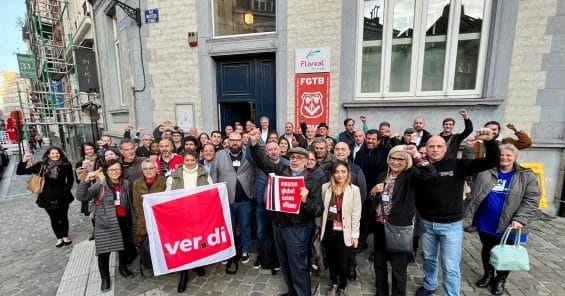European postal services are going through a period of major economic, organisational and technological changes: liberalisation of postal activities, privatisation of historical operators, decline of postal mail and redeploying workers to parcel distribution, automation of sorting centres, rationalisation of rounds…
These in turn lead to considerable changes in working and employment conditions. Although trade union organisations are historically well-established among postal employees, they are being severely tested in terms of their efficiency, demands, strategies and practices.
Embedded in the framework of the European programme to support social dialogue, this research project has set out – in a very unfavourable context – to identify and describe the organisation and redeployment of key trade union conflict and negotiation practices in the field of work and employment in five European countries (Belgium, Bulgaria, France, Spain, the United Kingdom).
It focuses on two of the main activities, mail and parcel post, and the employees who carry them out (mainly postmen and postwomen). One of the ambitions of this project is to help the affected trade union organisations disseminate and build on this experience.
This report presents the main findings of the research, which took place between April 2016 and March 2018, ending by an international conference in Brussels on the 9th March 2018, gathering the research teams and the unions, partners of the project.
A comparative approach is used in the first part of the report. It focuses on a cross-sectional analysis of the socio-economic contexts and the collective labour relations within the historical operators of the countries. This makes possible to highlight the commonalities and the national specificities. The second part is dedicated to the main trade union issues. The choice was made to analyse each issue within a specific national framework: the rationalization of postmen’s work (Belgium), the problematic quality of work (Bulgaria), changes in working schedules and questions about the trade (France), job insecurity (Spain) and the consideration of health and ageing at work (United Kingdom).
This Report is the outcome of a cross-cutting analysis of research reports about the historical operators in five countries: bpost in Belgium, Bulgarski Poshti in Bulgaria, Correos y Telégrafos in Spain, La Poste in France, and Royal Mail in the United Kingdom. The Research focussed on three specific aspects: contextual elements (1), collective labour relations (2) and challenges connected to work, employment and trade union action seen from the “field”, i.e. the surveyed delivery centres (3). The section about contextual elements addresses the issues of the liberalisation and shareholding/ownership of historical operators, the activities and results of these operators and, lastly, workers and their working and employment conditions. The second part offers an insight into three essential aspects of collective labour relations: trade union stakeholders, the organisation of social dialogue and, lastly, remedies and the type of conflicts at play. The third part reports on labour, employment and trade union activity dynamics in the “field”, i.e. the mail delivery centres surveyed in the five countries.
Project materials and information on the research team can be found here.
Click here watch an educational documentary film (in French only) produced as part of the NETPoste research on “Transformations and negotiations of labor and employment in European postal activities in Bulgaria, Belgium, Spain, France and the United Kingdom”
Using numerous archival images, and interviews with researchers and trade unionists, this film illustrates the approach and results of research on the dynamics of postal activities conducted between 2016 and 2018 by five European teams. At the center of the discussion are the implications of the liberalisation of the postal service and the decline of letter mail, and the way in which working conditions are brought into play in social conflict and collective bargaining.


